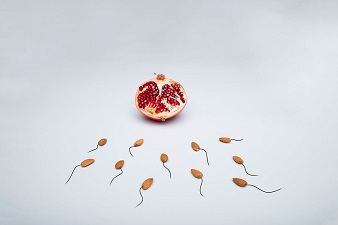Epididymitis Kills Your Sperm! Six Sins of Epididymitis
Date:2021-08-31 click:0
Epididymitis is common in non-specific infections of the male reproductive system, more common in young and middle-aged people. According to the course of the disease, there are two types of epididymitis: acute epididymitis and chronic epididymitis. Acute epididymitis is usually secondary to infection of the urethra, prostate, or seminal vesicles. Chronic epididymitis is often caused by incomplete treatment in the acute phase. How harmful is epididymitis to male health?
Break down the six significant sins of epididymitis
1. Block the passage of sperm
Suppose epididymitis is caused by pathogen infections such as Neisseria gonorrhoeae and Mycobacterium tuberculosis. In that case, it will cause inflammation and damage to sperm and easily cause shrinkage or blockage of the epididymal lumen. It can lead to incomplete or complete vas deferens obstruction near the epididymal end. It blocks the passage of sperm, traps the sperm in the epididymal tube, and cannot get out. T0he sperm only slowly sleeps to death, leading to necrospermia, and infertility is also an inevitable problem.
2. Reduce sperm motility
The epididymis infection directly causes damage to the sperm in the epididymal tube, inhibits the mobility of the sperm. Or it causes the sperm to agglutinate to reduce sperm mobility and reduce or even lose mobility.
3. Easy to cause shrinkage or blockage of the epididymal lumen.
Suppose epididymitis is caused by gonococcus, tuberculosis, mycoplasma, chlamydia, and other pathogens. In that case, it will cause inflammation and damage the sperm and quickly generate the shrinkage or blockage of the epididymal lumen. And it leads to an incomplete connection between the epididymal tail and the vas deferens—sexual or complete obstruction.
It is a sequela of epididymitis that is difficult to reverse. Sperm is blocked in the epididymal tube and cannot go out. It can only be slowly trapped to death or allowed to be slaughtered, resulting in obstructive oligospermia or azoospermia.
4. Immune reaction occurs, and anti-sperm antibodies are formed.
When the epididymis is inflamed, the body's self-defense system will act immediately. Immune cells such as white blood cells, lymphocytes, and humoral immune substances enter the inflamed epididymal tube to produce a clearing response to pathogens, forming what is medically called an immune response and producing immune cells.
At the same time, the ability of immune cells to recognize the body's tissues is significantly reduced. It directly reacts with antigens on the surface of sperm or seminal plasma to form anti-sperm antibodies.
5. Toxins produced by pathogens.
The toxins produced by pathogens can also poison the fragile sperm, which dramatically increases the mortality rate.
6. Directly damage the sperm in the epididymal tube.

Treatment of acute epididymitis
1. General treatment:
When resting in bed, the application of scrotum support can reduce symptoms, and enormous scrotum support with a cotton pad will be more comfortable to use. Patients with severe pain can use analgesics, and local hyperthermia can relieve symptoms and promote inflammation. However, premature use of hyperthermia can aggravate the pain and stimulate the risk of spreading infection, so early local cold compresses with ice packs should be used. Sexual life and physical labor can worsen diseases, so they should be avoided.
2. Application of antibacterial drugs:
Choose drugs that are sensitive to bacteria, such as Diuretic and Anti-inflammatory Pill, which have solid bactericidal power and can effectively kill harmful bacteria in the body. Usually, antibiotics are administered intravenously for 1-2 weeks, and oral antibacterial drugs are taken for 2-4 weeks to prevent chronic inflammation.
3. Surgical treatment:
Suppose antibiotic treatment is ineffective and testicular ischemia is suspected. In that case, epididymal incision and decompression should be performed, and the visceral epididymal sheath should be cut longitudinally or horizontally. But the epididymal duct should be avoided.
Treatment of chronic epididymitis
Chronic epididymitis can try to use herbal medicine Diuretic and Anti-inflammatory Pill with broad-spectrum antibacterial effects. It can kill all kinds of bacteria and viruses that cause male genitourinary system diseases, as well as pathogens such as mycoplasma and chlamydia. Physiotherapy such as local hot compress is also necessary, and the epididymal topical application of berberine or neomycin plasma infiltration treatment can also be used. If chronic prostatitis exists, it must be treated at the same time. Recurrent epididymitis originating from chronic prostatitis may be treated after ligation of the vas deferens. For authors who have repeatedly posted multiple times, epididymectomy may also be considered.
After a pathogen infects the epididymis, some pathogens (such as Escherichia coli) can directly damage the sperm in the epididymal tube, inhibit the mobility of the sperm or cause the sperm to agglutinate to reduce their mobility.
You may be also interested in:
How does Diuretic and Anti-inflammatory Pill work on epididymitis
How Can Epididymitis Harm Sperm?
Do Not Let Epididymitis Ruin Your Sex Happiness



